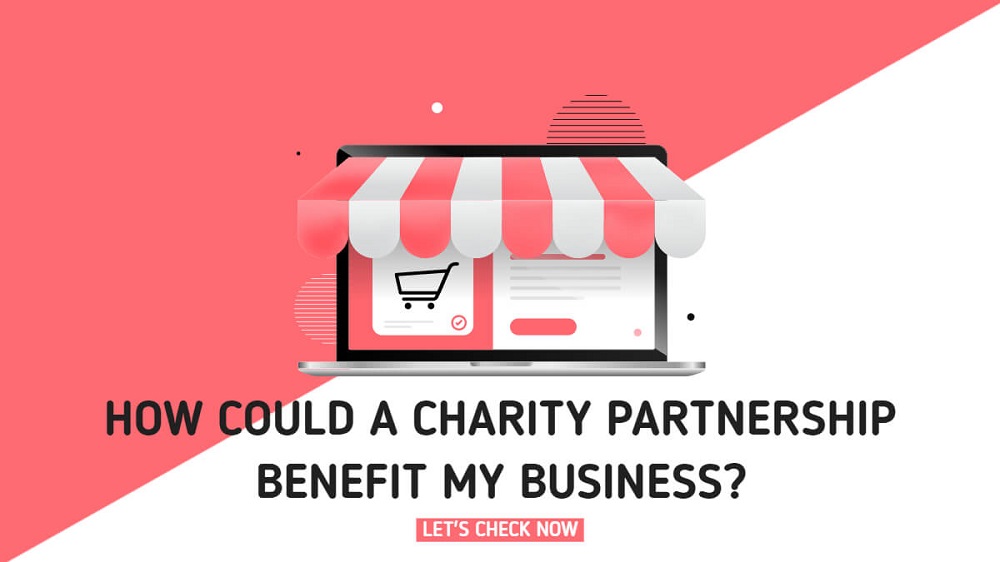For many top brands, developing a charity partnership is a hugely rewarding part of their work. With social responsibility high on the business agenda these days, it’s never been more important for brands to consider their impact on society. As a smaller e-commerce brand you must have to think about partnership to scale your online business. Here are the tips that can give your answer of how smaller ecommerce brands can scale and succeed.
But not only do these partnerships enable businesses to ‘give something back’, they can actually end up boosting their own profits. That’s what we call a win-win!
You don’t have to be a huge global business to form a charity partnership. Sometimes small, local partnerships can be just as beneficial for your business.
Let’s take a look at the ways a pre-competitive partnership could benefit your business:
What Exactly Is a Charity Partnership?

Charity partnerships (sometimes also known as brand synergy partnerships) are collaborative agreements between a business and public organisation or charity.
Designed to be a mutually beneficial partnership, both sides stand to gain from working together and sharing resources. A charity might receive funding, sponsorship and awareness-raising, while a business could gain anything from positive PR to a more engaged workforce and client base.
What Are The Potential Benefits For My Business?

Aside from the very real feel-good factor you get from knowing you’re helping a charity or cause close to your heart, a charity partnership can also be good for business.
Choose The Right Partnership And It Could Bring You:
- Great PR
- Brand awareness
- Staff engagement
- Creative opportunities
- Increased credibility
- Stronger relationships with your stakeholders
- A rise in profits
- Client loyalty
Think about it. If you decide to donate a percentage of profits from sales of a product to support of a popular local charity, this can drive up sales as your community and employees get behind the project. Even after donating generously to the charity, this could still leave you with an increase in profits. Everyone’s a winner.
Who Else Is Doing It?

There are some great examples of pre-competitive partnerships if you’re looking for a little inspiration.
Online fashion retailer Yoox partnered with Australian brand We Are Handsome to launch their Yoox Loves the Reef project. A portion of funds raised from their exclusive ocean-inspired swim and activewear range go towards supporting the work of the Great Barrier Reef Foundation. A great example of a collaborative project where everyone can benefit!
In an excellent example of brand synergy, Pampers have a strong charity partnership with UNICEF. Their long-running collaboration has helped eliminate maternal and neonatal tetanus in 15 countries through their 1 pack = 1 vaccine campaign. Pampers have cleverly aligned themselves with a charity that will be important to its customers: parents.
For proof that corporate-charity campaigns can (and should) be creative and fun, look no further than Innocent Big Knit Campaign, run in collaboration with Age UK. Their cute smoothie hats have grabbed the imagination of the public, inspiring them to get knitting – and in turn raise over £2.65 million to help keep vulnerable old people warm during the winter.
What Should I Consider When Choosing A Partnership?

Finding the right charity partner is essential. So what should you think about before embarking on your collaborative journey?
- If possible, find a charity that shares your values and is relevant to your area of work. As you can see from the examples above, this is a great foundation for long-lasting and successful partnerships.
- Think about what you can realistically bring to the table. Is it time? Money? Publicity?
- Choose an appropriately-sized charity. If you run a small local business, choose a local charity from within your community to work with. If you have a larger, national company, work with a national charity.
- Find out who your stakeholders and staff donate to. It’s important to choose a charity that resonates with them – and it’ll make it much easier to get people involved in your projects and campaigns.
- Make sure your charity partner is a registered charity and have transparent accounting practices. It’s important that you know how your donations are spent.
- Trust your gut. When you find the right partner, you’ll know. If an organisation doesn’t feel like a good fit, listen to your instincts and keep searching.
- Test your partnership with a trail run. You could run a small-scale project together to see how everyone gets along working together before committing to long-term campaigns.
When done right, a charity partnership can be a fantastic thing for your business. Take your time, do your research and involve as much of your team as possible to make sure you develop a fun partnership that’s rewarding for everybody.
